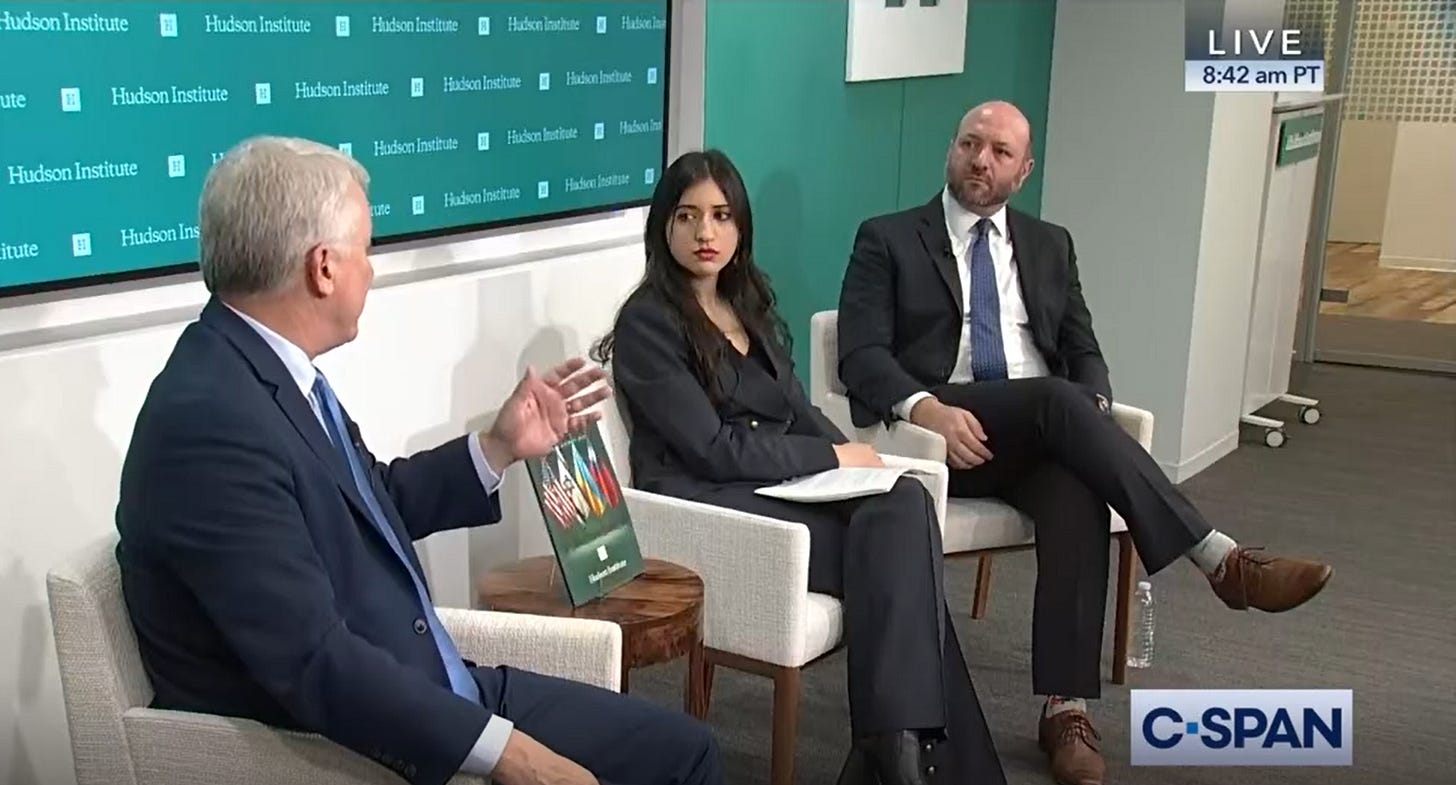Riboua's Near East Newsletter #4
U.S. Elections 2024, Russia's Africa game
Whether in Europe, Asia, or Africa, all eyes are on Washington.
The next U.S. President holds the power to shape—or disrupt—the current geopolitical landscape.
While much recent attention has centered on NATO, Ukraine, Russia, and China, I had the opportunity to discuss Middle Eastern policy approaches with Gabe Scheinmann, Executive Director of the Alexander Hamilton Society, and Michael Doran, Senior Fellow and Director of the Hudson Institute’s Center for Peace and Security in the Middle East.
We explored the differing strategies of former President Donald Trump and Vice President Kamala Harris regarding this critical region.
The Middle East has long been at the heart of great power competition.
However, I’ve dedicated my focus to another region with significant strategic implications for the United States: the Sahel. In my article for The National Interest this week, I explain why this region warrants greater attention:
“Despite the setbacks Russia faces in its ongoing invasion of Ukraine, Wagner Group mercenaries, which have rebranded as “Africa Corps” in certain areas, remain firmly entrenched across Africa. The group has not only sustained its foothold but also has deepened Russia’s ties with the mineral-rich Sahelian nations. It has secured strategic deals like the naval base at Port Sudan—giving Moscow a critical gateway to the Red Sea. The real threat lies in Russia's expanding reach, which, combined with the growing influence of China and Iran in the region, poses a direct challenge to the U.S.-led global order.
Yet, not all is doom and gloom. There are chinks in Wagner’s armor since its mercenaries' recent defeat in northern Mali by the Tuareg separatist group, the Azawad, has exposed critical vulnerabilities. Coupled with their persistent failure to curb terrorism in the areas they control, these weaknesses offer strategic opportunities for the United States and NATO allies to counter Russia’s influence on the continent.
Despite their successes, Wagner mercenaries have struggled to produce meaningful, positive outcomes on the ground. Their efforts to counter terrorist threats—central to their mission and legitimacy—have been notably ineffective. Since the Russian-backed military juntas outsourced security to Wagner, terrorist threats have only increased. According to a report by U.N. Secretary-General Antonio Guterres on the Sahel and West Africa, Burkina Faso remains at the heart of regional terrorism.
The arrival of Wagner mercenaries has also fueled the rise of jihadist groups like al-Qaeda and Jamaa’t Nusrat al-Islam wal Muslimin (JNIM) while also reigniting militant separatist movements. These factions see Russia's alignment with local governments as an existential threat. In northern Mali, for example, the Azawad Tuareg rebels have escalated their attacks, targeting both the military junta and Wagner forces. On July 25, they ambushed a convoy, killing at least twenty Wagner mercenaries.
(…)”
As Russia's influence expands, more African nations find themselves ensnared in a new Cold War-like scenario.
To delve into U.S. foreign policy in Africa and explore how a Trump or Harris administration might shift these dynamics, I had an insightful conversation with Cameron Hudson, Senior Fellow at the Center for Strategic and International Studies; Aaron Zelin, the Gloria and Ken Levy Senior Fellow at the Washington Institute for Near East Policy; and my colleague Joshua Meservey, Senior Fellow at the Hudson Institute.
Thank you for reading and for your support!





Question: The Wagner Group is characterized as a mercenary organization. Is this completely accurate, or would it be better understood as a sort of semi-deniable Russian Foreign Legion?